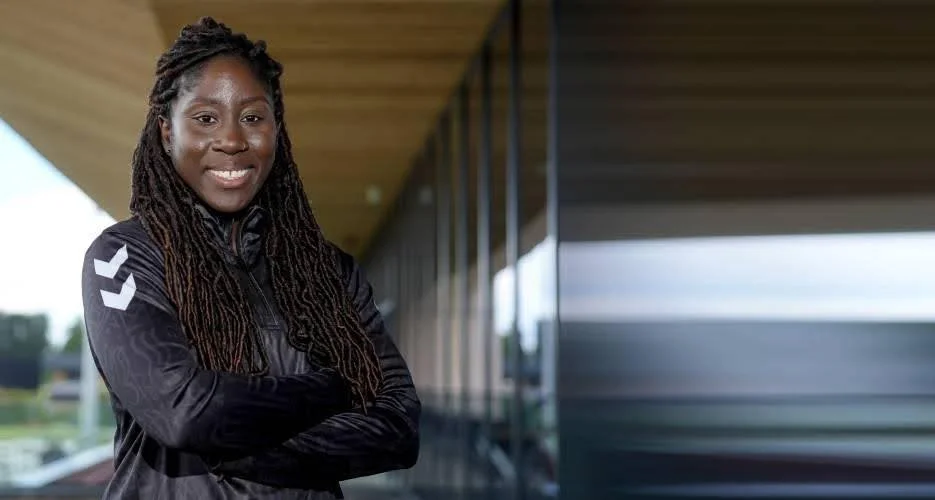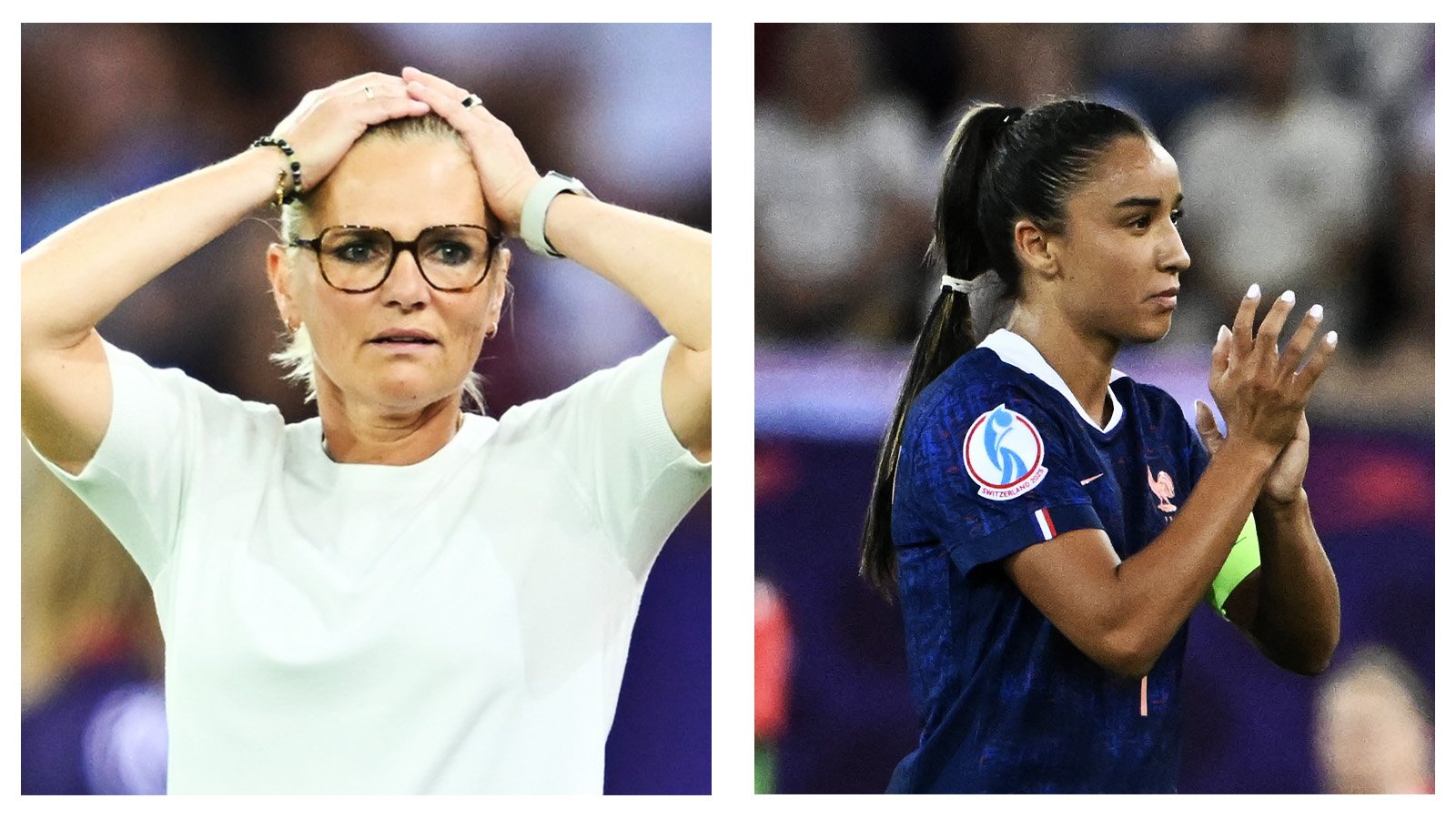Anita Asante on Arsenal’s quadruple, breaking barriers & building a more inclusive game
Anita Asante is one of the most respected figures in British football and a leading voice among today’s most in-demand football speakers.
A central defender and midfielder who made over 70 appearances for the England national team, she played a pivotal role in Arsenal’s historic 2006/07 season, when the club secured an unprecedented quadruple - including the UEFA Women’s Cup, FA Women’s Premier League, FA Cup and League Cup.
Over a career spanning two decades, Anita played at the highest levels in England, the United States, and Europe, with spells at Arsenal, Chelsea, Aston Villa, and international clubs such as Göteborg FC and Sky Blue FC.
Known not only for her composure on the pitch but also for her leadership off it, Anita has become a powerful advocate for inclusion, equality, and player welfare across sport.
In this exclusive interview with The Champions Speakers Agency, the trailblazing defender opens up about her proudest footballing moments, the realities of moving abroad as a young player, and the urgent need for greater inclusivity across the game.
Q: Reflecting on your international career and time in the US, what were the most significant personal challenges you encountered, and how did you build resilience through them?
Anita Asante: “For me, I think the toughest time I faced in my playing career was actually when I moved abroad for the very first time as a 21–22-year-old to the American league, which was the first professional league I'd ever got a chance to play in.
“Having that transition, leaving your family, your friends for the first time, I had to find a lot of inner confidence and self-independence and navigate my way through this transition.
“But ultimately, I think when I experienced being traded from club to club, which was not within my power - it was within the club’s ability to just trade me on the spot to a different club - and have to sort of uproot myself again and go through that transition multiple times, I would say was the most difficult.
“Because you have a lot of inner questions and self-doubt and a lot of the unknown quite repetitively.
“So, you are wondering, will the next coach appreciate my talent? Would they want me to play in a team? Will I get on with my team-mates? Will I transition into my environment comfortably?
“All of those things, I think, were a challenge. But the fact that every time it happened, especially the first time it happened, I experienced it and I got through it.
“I was like - I survived. And then that becomes part of your resilience tool, your sort of resilience box, if you like.
“That every challenge you meet and you succumb, however big or small that success is, you just put it away in that kind of resilience box, like I say, and then you know you can sort of deal with any challenge that you're going to face in the future.”
MORE FOR YOU: UEFA Women’s Euro news: Analysing the Lionesses’ disappointing performance against France
Q: Based on your lived experience, how would you assess the current state of LGBTQ+ inclusion across the footballing world, both on and off the pitch?
Anita Asante: “In my experience, I would say I wouldn't say sport as a whole is very inclusive.
“I would say that I've always found women's football quite inclusive, especially in my early days, that lots of people, lots of young girls and women from all different walks of life would naturally come together and build their own teams, whether that was from professional clubs or independent of their local areas.
“I still think there's work to be done and we can't take it for granted and assume that we are just inclusive. We've got to be proactive in that space as well.
“But in general, I think football obviously can do a lot more to create those safe spaces in the terraces, as well as on the pitches and within the inner structures of the game.
“And the more that people are aware of people from the LGBTQ+ community that work in football as well, I think it opens doors for others to feel that they can be part of this community in this space, and hopefully one day have a role within the game.”
Q: What foundational steps must governing bodies and clubs take to address systemic gender inequality in sport, starting from grassroots through to elite level?
Anita Asante: “Well, fundamentally, I think recognising athletes and opportunity as equal - giving young girls and young boys the same equal opportunities from the very base level, and that's the grassroots level - foundations within clubs, and given the same level of resource and attention to it, and it will not naturally cultivate and thrive on its own.
“I believe you give anyone that kind of space to feel empowered and show their ability, it can just grow with that.
“So, I think fundamentally you need to have the right grassroots foundations, but you also need people at the top who execute power to be pulling in the same direction and recognise the equal value of both boys and girls - and obviously men and women - within different roles within sport.”
Q: As someone who’s become a vocal advocate for social justice, what helped you develop the confidence to speak out - and how has your platform evolved over time?
Anita Asante: “Yeah, like I've said before, it took a long time to discover that inner self-confidence and self-esteem.
“I think a lot of us can relate to the fact that you have opinions and you want to share your thoughts, but you don't always have the confidence or feel that you have the space or the platform to do so.
“And I think as my profile has also improved and increased within the sport, I've recognised the power of sharing my opinion and thoughts through my platform.
“And that's just come with time and I think age and life experience, and also my journey in the game.
“You know, playing abroad, meeting other players, learning about the different challenges I think that we all face - and lots of young girls and women alike, and especially women from my background and other backgrounds - can relate to along the way.
“So, I felt it's even more important, I guess, to use my platform to speak up on things.”
YOU MAY ALSO LIKE: PFA Women’s Player of the Year: Arsenal, Chelsea, Man City and Man Utd stars dominate the shortlist
Q: You’ve achieved so much throughout your playing career. From club success to international tournaments, which milestone stands out to you as your proudest professional moment - and why?
Anita Asante: “Oh, that's a very good question. I think I've had a lot of moments in my career that I could definitely say I'm proud of, but winning the quadruple with Arsenal has to be up there.
“Because I think we did something at a time where the game wasn't fully behind us. We created history for our club and our country, and collectively we did that, and that's something that will live with me as a really positive memory, I think, for a lifetime.
“But I also have to say, playing at a home Olympics in 2012 was something I didn't even imagine to be possible. So, the fact that I was there and I got to kick off the tournament was an incredible feeling.”
This exclusive interview with Anita Asante was conducted by Chris Tompkins of The Motivational Speakers Agency.
READ NEXT: Courage under pressure: Briana Scurry's story of leadership, loss & legacy as a former footballer



